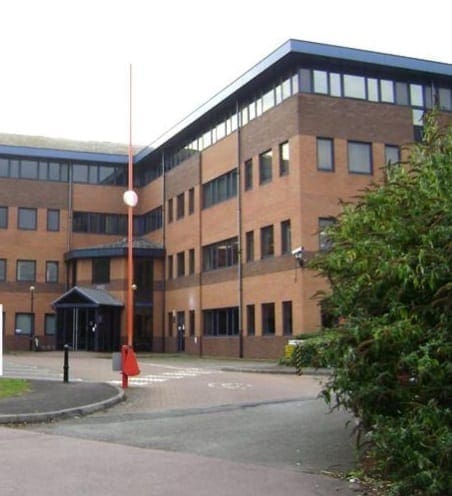Individual Placement and Support (IPS) Employment Services
About us
We work closely with clinical teams and local employers and provide ongoing, individualised support as well as benefits counselling.
The service is provided by the Gloucestershire Health and Care NHS Foundation Trust IPS Employment team and we pride ourselves on providing an individualised service to help find the right person for the right role.
Contact us
Call 0300 421 3149

Individual Placement and Support (IPS)
People with severe mental health problems who find paid employment show reduced symptoms, improved quality of life and financial independence.
Starting competitive paid employment can be an integral part of a client’s recovery journey.
Our Individual Placement and Support (IPS) Employment Services Team works closely with clients who would like to return to work, providing an accessible and individualised service. We work with clients like Benji, who now has paid employment at Cheltenham Town Football Club.
Below are two videos (a shorter and longer version) about Benji’s experiences.
Looking for work?
Our IPS specialists provide advice and practical support to help clients find employment and enjoy the benefits that brings.
If you are a working-age adult with a serious mental health illness and you currently receive support from our Trust’s Secondary Mental Health Services, we can help you find paid part-time or full-time employment opportunities. We work closely with clinical teams and local employers and provide ongoing, individualised support as well as benefits counselling.
The right employment can help with your recovery from a serious mental health illness, providing financial stability and independence as well as opportunities to meet new people and be part of a team. A structured, fulfilling day can help improve health and wellbeing and builds self-esteem.
We pride ourselves on providing an individualised service to help find the right role for the right person, regardless of job experience. Our Employment Specialists work alongside mental health nurses, social workers and psychologists to help you get into work and stay healthy.
We provide a range of practical support, including:
- Job searches
- Support to write CVs, covering letters and personal statements
- Support to access benefits advice
- Support to apply for jobs and prepare for job interviews
- Support to sustain and retain employment
- Support to build confidence around returning to work
Start your career with IPS today
Employment should be part of getting better, not a result of getting better. If you are receiving treatment from services within our Trust – such as our Assertive Outreach Team, Eating Disorder team, GRIP or the Recovery Team – then we can help. You must be aged over 18 and willing to start an active job search for paid work within four weeks of your first IPS appointment. If you meet these criteria you can get a referral to our service from:
- Your care coordinator
- Your community psychiatric nurse
- Your recovery worker
- Your key worker
Success Stories
Making a difference for our clients
Stephanie’s recovery story I am 36 years old and have been in and out of mental health services for the majority of my adult life. I’ve worked with Karen for 13 years on and off throughout my recovery journey. When I met Karen, I was unemployed due to my mental health. She has supported me through the years as I worked in health and social care with her support and as I battled through the challenges of having EUPD, depression, anxiety, addiction and other mental health conditions.
Due to the nature of my disabilities I can get anxious at work, make bad decisions and struggle with authority; meaning I have not been the easiest person to keep in work at times. But together with Karen, she has fought through to ensure I achieve what I can, as all I have ever wanted to do is work with people.
I was diagnosed with thyroid cancer in 2020 and my mental health deteriorated as a result; in 2022 I was signed off (again) from my care job at Genesis where I desperately wanted to be, but I was too unwell to work. I struggled with not only my physical health problems, but low mood, constant crying, self harm, anger and I lost all hope and began to plan on ending my life, not seeing another way out.
I returned to mental health services and started to work with Karen again. She helped me to return to my care job and spoke with my manager and supported me to return and not burn out again.
We focussed on my dreams and hopes for something more than the night shifts that I was working, so together we looked at other job opportunities that I was qualified for. Karen helped me to find a ‘Lead Youth Worker’ role at Frith Youth Centre, a charity in my local area, with some support from Karen I applied, although I felt the job was out of my league and I didn’t set my hopes on it.
I was so happy and surprised when I got the job, as it was my ideal role and something I worked hard for. I wouldn’t have had the confidence to apply without Karen’s support and advice, she has helped me grow through my 20s into my 30s with her support, emotionally as well as at work/ education, and I owe so much to her, she always believed in me, even when I didn’t have the strength to believe in myself and now I have my dream job!
Working with Karen I have stayed employed in 4 different companies, through my mental health crisis. Thanks to her support and speaking with my work to help me return with reasonable adjustments Karen kept me in work when I would have just given up!
I have my NVQ in Health and Social care now.
Karen supported me when I spent time as an environmental activist, giving my anger a healthy outlet.
I completed college in 2016 after coming off a section with Karen’s help. With her constant encouragement and advice, I qualified with my Level 2 in hairdressing.
I have finally achieved my dream job, as a Lead Youth Worker, managing the running of the centre and organising and implementing all the youth sessions at Frith Youth Centre.
Cathy’s recovery story Catherine was diagnosed in 2013 with PTSD, Anxiety, Depression and Agoraphobia which resulted in her being unable to speak to anyone other than her husband and children. After being seen by a mental health nurse, Catherine was put in touch with Employment Specialist Karen Hogarty-Hingston from our IPS team. “Straight away I felt like I could feel comfortable with her. For some reason she could see positive things in me that I could not see myself. Karen saw me as a strong person and that I had a great deal of fight in me but I couldn’t see it at the time. The first thing that I had to try and manage was getting out of the house, so with Karen’s help and patience and by letting me put the work in when I was ready, eventually I did it. I knew as well that if I had a bad day, it was okay and that I did not need to feel bad about it”. With Karen’s support, Catherine set up her own baking business and got back into working, eventually for an agency in Cheltenham. Unfortunately, following a diagnosis of Fibromyalgia and Arthritis, she had to retire from working due to health reasons, but this followed a journey of ten years of working with the support of our IPS Employment Specialist Karen; a journey that took her from isolation to a much more positive place as Catherine explains here in this video. Here she reflects on her journey with Karen:
Is your organisation looking for employees?
We can help your business to be inclusive, socially responsible and to attract skilled, motivated, productive and conscientious workers.
If you are looking for conscientious, skilled workers and are committed to tackling discrimination in your workplace, we can help you.
Attracting talented individuals
Many people with a mental health issue have valuable work skills and experience and can manage their condition so it has no impact on their ability to do their job.
Ignorance, stigma and discrimination can be major obstacles for people with mental health issues, but with our support, our clients are productive and fulfilled employees.
Our Employment Specialists support clients and employers for as long as required. We work with employers to ensure you make the most of individuals’ skills and experience.
We can also help you comply with legislation, including the Disability Discrimination Act plus we provide free work-based training and support in managing mental health.
It is a win-win as through our support, our clients are better able to support your business, have increased productivity and reduced sickness rates. Your workforce may feel more supported and able to discuss issues and ideas with you!
If you would like to find out more, call our friendly team on 0300 421 3149
Locations for this service


